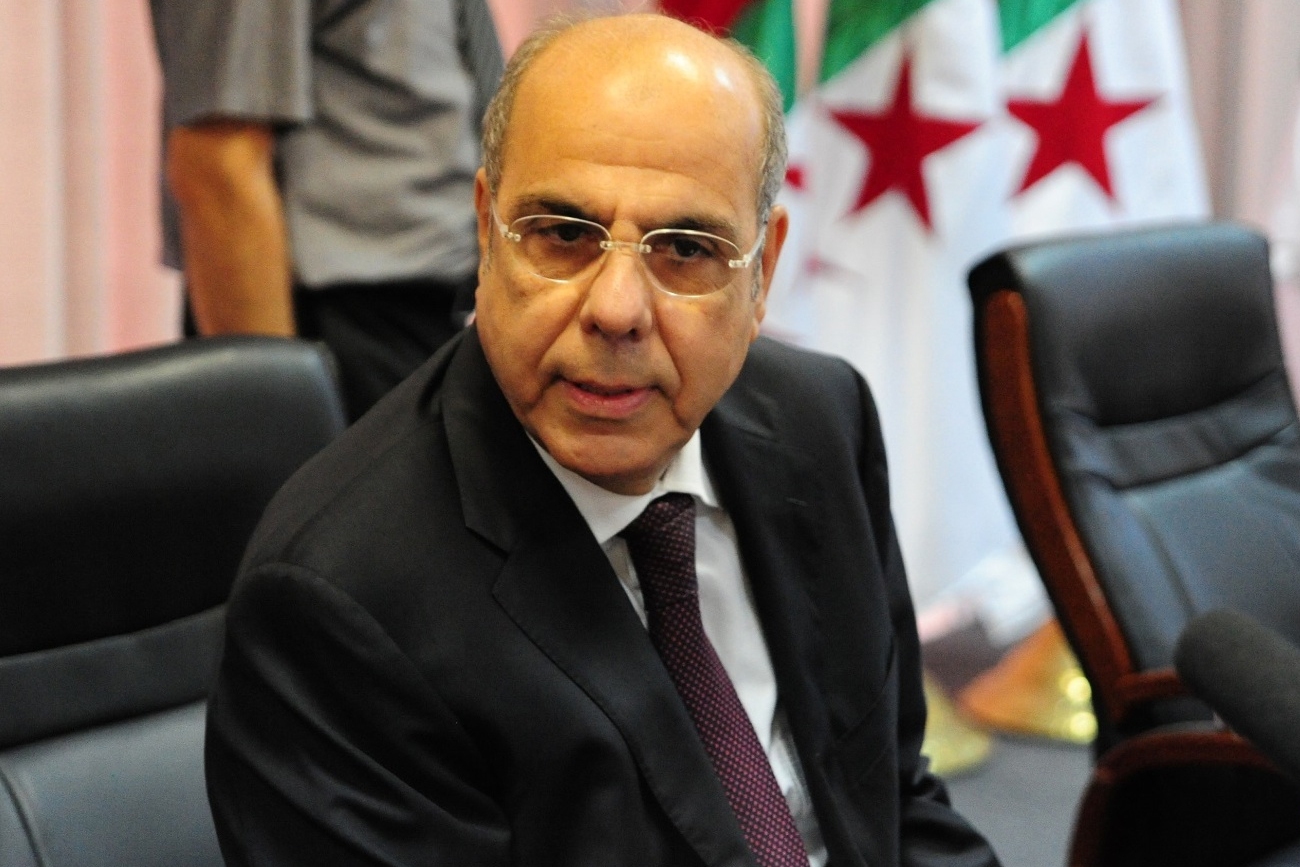The former president of the Algerian Football Federation (FAF), Mohamed Raouraoua, has held a millionaire account at the Crédit Suisse bank. This was revealed by the listing obtained by Süddeutsche Zeitung (SZ) and shared with The Organized Crime and Corruption Reporting Project (OCCRP) and partner news organizations, including Twala.
A flamboyant character, slithering between football, media and culture, Raouraoua is first and foremost a businessman. From his beginnings as an employee at the ministry of Information and Culture back in the days of the Single party to his crashing appearance as president of the Algerian Football Federation (FAF) in 2001, Raouraoua grew rich and sharpened his interpersonal skills in the merciless world of media.
He was 32 years old when he was confirmed in cultural counselors body by a ministerial decree in January 1978 while he was heading the Center of Culture and Information (CCI) in Algiers, which managed, among other things, the Atlas and El Mouggar film theaters–the CCI, created in 1968 and representing the exterior services of the ministry of Information, later formed the National Office of Culture and Information (ONCI). In April 1982, Raouraoua became the coordinating director of exchanges at the ministry of Information.
In 1984, he was appointed as director of television at the RTA (Radiodiffusion-télévision algérienne) during a short parenthesis before being given, during the same year, the job of general director of the SN.ANEP (Agence nationale de l’édition et de publicité), which managed the advertising portfolio of state-owned companies. He held that job for ten years.
Raouraoua survived the reform of the state’s commercial sector, which transformed economic socialist enterprises into economic public companies in 1990. And he remained at his job at ANEP until 1995. He was fired by general Mohamed Betchine, special adviser of president Liamine Zeroual, in 1995. He then went on to advise Saudi billionaire Abdullah Saleh Kamel, owner of the Dallah Albaraka conglomerate which owns the Albaraka bank and which had just launched the media group ART (1993).
Raouraoua became a client of Crédit Suisse before exiting ANEP in 1995.
In 1999, Mohamed Raouraoua created a company called Eurogerm Algérie in order to import agri-food products. That was right before his comeback on the public stage as president of FAF, in 2001. He had never managed a football club before being inducted at the top of the highest football body in Algeria.
In February 2002, president Abdelaziz Bouteflika named him as commissioner of the Algerian culture year in France “Djazair 2003”, replacing the late colonel Hocine Snoussi, a former MALG member who was heading the Ryadh El Feth Office (OREF) in the 1980s.
During his first term as FAF president, Raouraoua was busy managing the two thousand cultural events of “Djazair 2003” more than he was taking care of national football. This did not go without controversy, especially relating to the unclear budget of the cultural manifestation decided by Bouteflika and his French counterpart Jacques Chirac. Forced to let go of his FAF job in 2005, he regained it in 2009, when the term of his successor, Hamid Haddadj, came to an end.
Raouraoua, however, became a client of Crédit Suisse before exiting ANEP. Opened in 1995, his account remained open until June 2013. It was fitted with 2.7 million Swiss francs at its closing. The account also had two other beneficiaries, his two sons Youcef and Abdelkader.
The latter is the general director of the Algiers Business centers (ABC) company which owns “Le Ksar”, a real-estate complex of 23 000 square meters divided into 12 office floors, 3 underground parking lots and an adjoining 3 floor building, located at the business neighborhood of Bab Ezzaour, in Algiers. Raouraoua and his two sons are shareholders in this company, in addition to Natixis. This bank, which financed the construction of the “Ksar” with a loan, is the main tenant.
In short, the two terms of Mohamed Raouraoua as president of the FAF between 2009 and 2017 literally propelled him on the international stage. He succeeded in federating his peers at the FIFA congress in Nassau (Bahamas) in 2009 in order to abolish the age limit for binational players wishing to play for the countries of their parents. Thanks to his lobbying, the doors of the national teams were opened to players such as Mourad Meghni, Hassan Yebda, Djamel Abdoun, Yacine Brahimi and Sofiane Feghouli, who had played in the youth categories of the French national team and could not until then join the Algerian national team for having exceeded the age of 21.
In 2011, Mohamed Raouraoua was elected to the executive committee of FIFA and became a member of its finance commission. He also headed, during his term at the executive committee of the highest international football body, the organizing commission of the FIFA club world cup (Morocco, December 10-20, 2014).
Under his leadership, the national football team adopted a model of importing players of Algerian origin who were mainly taught in France. He wanted to revitalize the sport through the national team. This put an end to Algeria’s absence from the world cup for almost three decades, after their qualification to the 2010 (South Africa) and 2014 (Brazil) editions, but failed in making the Algerian football league a professional one. This project, launched in 2011, has still not become a reality.
